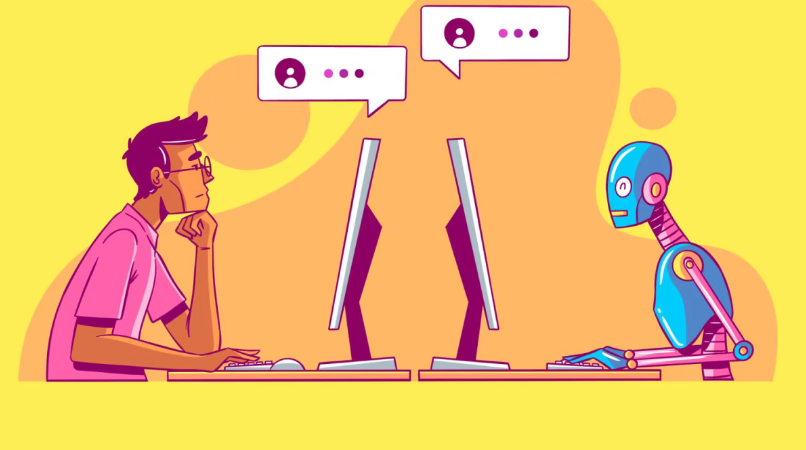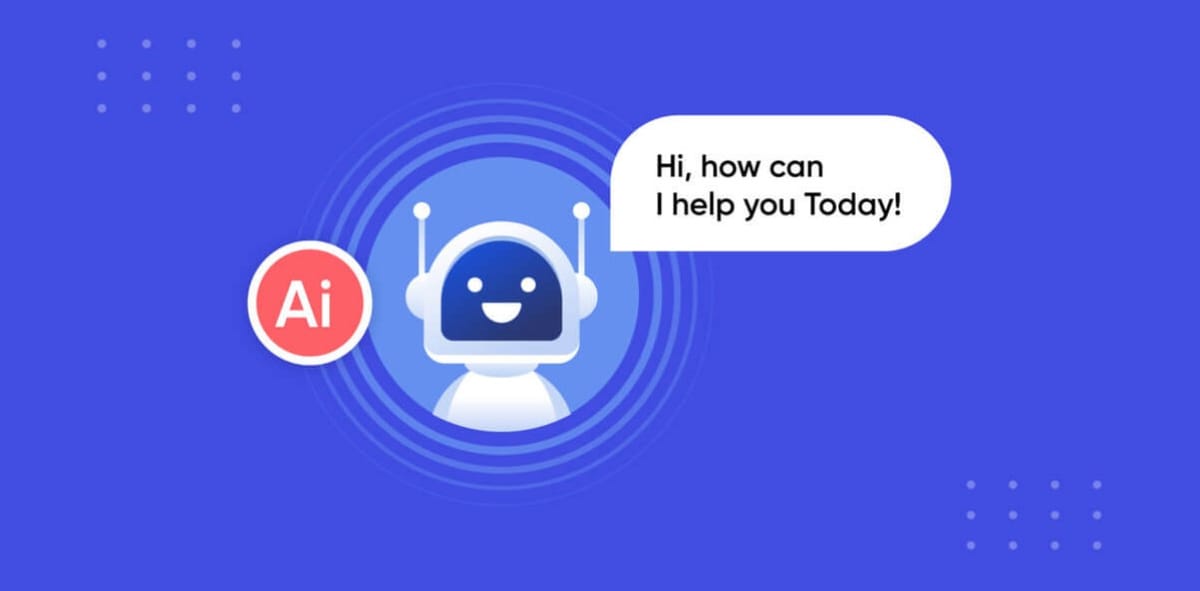Weighing your options: AI chatbots or human sales representatives?
Examine the pros and cons of both AI chatbots and human sales reps to better understand which option suits your business needs.

AI chatbots have become integral to modern business operations, offering round-the-clock service and handling multiple customer inquiries simultaneously. These digital assistants are programmed to mimic human conversation, leveraging natural language processing to interpret and respond to user queries. As technology advances, AI chatbots are becoming increasingly sophisticated, capable of offering personalized interactions that can significantly enhance customer experience.
However, despite their growing capabilities, AI chatbots are not without limitations. While they excel in handling routine tasks, they sometimes struggle with complex customer requests that require emotional intelligence and deep contextual understanding—traits that are inherently human.

Pros and cons of AI chatbots
AI chatbots have transformed how businesses interact with their customers, significantly impacting both customer service and sales domains. These intelligent systems are not just augmenting human efforts but are reshaping the entire customer interaction landscape with their advanced capabilities.
In terms of advantages, AI chatbots excel primarily due to their efficiency; they can manage thousands of interactions simultaneously without a drop in service quality. This ability ensures immediate responses to frequent inquiries, significantly reducing wait times for customers.
Moreover, chatbots are remarkably cost-effective. By automating routine customer service tasks, they allow human agents to focus on more complex and nuanced issues, thereby optimizing workforce usage and reducing operational costs.
Another significant benefit is their scalability. Chatbots can be scaled up or down depending on customer service demand, allowing companies to handle peak times effortlessly without the need for additional staff.
However, AI chatbots come with their own set of limitations. One major drawback is their lack of empathy. Unlike human agents, chatbots cannot genuinely understand or relate to the emotions of customers, which can be a critical shortfall during sensitive interactions.
Additionally, while they are adept at processing keywords and phrases, their understanding is not as deep or nuanced as that of a human. This sometimes leads to misunderstandings, especially in complex customer queries.
Lastly, chatbots' effectiveness is heavily reliant on the data and scripts they are fed. This dependence can restrict their ability to effectively handle novel situations or non-standard customer requests that stray from their programmed responses.
Through these strengths and weaknesses, AI chatbots continue to play a pivotal role in modern business strategies.
Pros and cons of human sales reps
Human sales representatives continue to be a vital part of the customer service and sales industries, providing a level of personal interaction that AI technologies strive to replicate. Despite the rise of AI chatbots, the unique capabilities of human representatives remain crucial for delivering high-quality customer service.
On the positive side, the personal touch offered by human representatives is invaluable. They build personal connections and establish rapport with customers, which are essential for fostering long-term relationships and loyalty. Human reps excel in complex problem-solving situations where nuanced understanding and creative solutions are required—abilities that AI currently cannot match.
Furthermore, human representatives are highly adaptable; they can adjust their approach and tone based on the specific context of the interaction or the customer’s emotional state, ensuring a more personalized and effective customer service experience.
However, there are notable drawbacks to relying solely on human representatives. Firstly, the costs associated with employing human sales reps are significantly higher than those for deploying AI chatbots. These costs include salaries, training, and other related expenses.
Additionally, human capacity is limited, which can result in scalability issues. During peak times, this limitation might lead to longer wait times, potentially affecting customer satisfaction.
Another challenge is inconsistency; human performance can vary greatly due to factors such as mood, health, and personal biases, which can occasionally compromise the quality of service.
Despite these challenges, human sales reps provide irreplaceable value through their empathy, adaptability, and complex reasoning, traits that are currently beyond the reach of AI technologies.

5 AI chatbots to improve your customer service
AI chatbots are changing the landscape of digital sales by automating complex customer interactions with a level of sophistication and personalization that mirrors human sales representatives. Here are some examples of AI chatbots:
Drift provides an AI-powered chatbot that excels in converting website visitors into leads. This tool is especially useful for businesses looking to automate their initial customer interactions without sacrificing the personal touch that drives sales. Drift's chatbots can qualify leads, book meetings, and even recommend products in real-time, mimicking the persuasive and adaptive behavior of top sales reps.
Intercom's Resolution Bot is designed to handle customer queries instantly and autonomously, making it an ideal virtual sales assistant. This bot can answer common sales questions, provide product information, and guide users through complex sales processes. By integrating with various sales and CRM tools, it ensures that potential leads are nurtured and handed off to human agents when a more personalized approach is necessary, thus streamlining the sales funnel efficiently.
Ada's AI-powered chatbot specializes in personalized customer experiences, which are crucial in sales contexts. It can engage customers by providing tailored responses and solutions based on the customer's past interactions and preferences. Ada's chatbot is capable of handling transactional tasks like taking orders or processing payments, often reducing the need for direct human intervention in sales operations, thus enhancing operational efficiency.
Freddy AI by Freshchat leverages machine learning to deliver proactive sales support. It engages potential customers by analyzing their interaction patterns and predicting their needs, offering solutions and recommendations before the customer even asks. This proactive approach not only enhances customer satisfaction but also boosts sales by presenting timely and relevant product suggestions, thereby replicating an insightful sales representative's strategy.
As AI chatbots continue to evolve, they become increasingly integral to sales strategies in diverse industries, offering solutions that augment human capabilities and streamline complex processes.
ContentGrow is a managed talent network for brands and publishers to work with high-quality freelance writers and journalists worldwide. Sign up to get started or book a discovery call to learn more.





